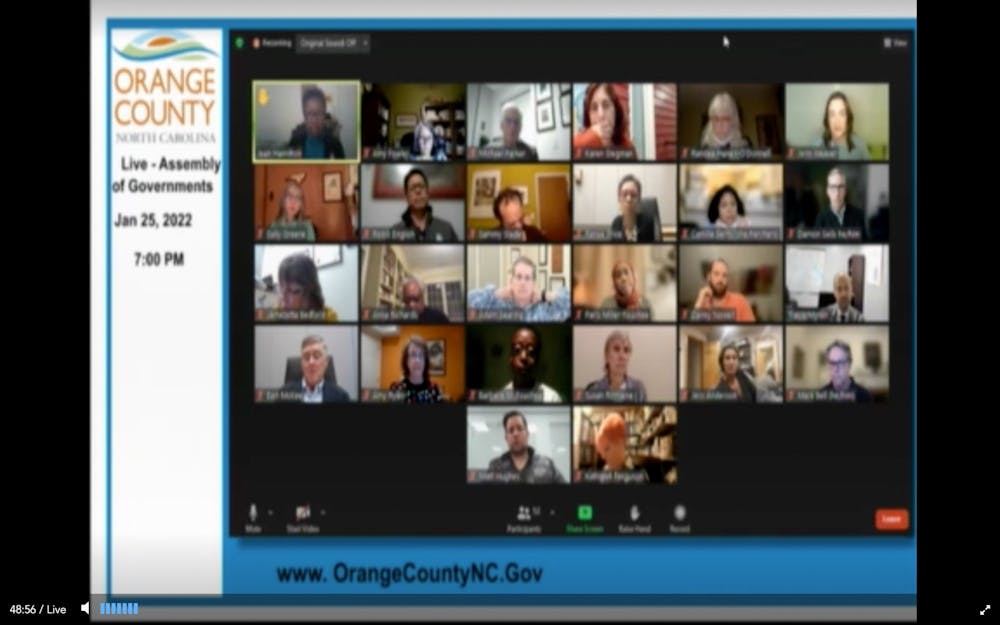“Housing was another separate recovery function,” Myren said. “One of the programs that we all collaborated on together, which was a real success, was our Emergency Housing Assistance program.”
The Emergency Housing Assistance program has already provided over $6 million in housing assistance to more than 1,500 Orange County residents. The program now includes utility assistance, Myren said.
Mental health support and racial equity
Orange County also seeks to provide better access to behavioral and mental health services. A key strategy is to target increased substance abuse caused by social isolation from the pandemic and to destigmatize abuse support.
Carrboro Town Council member Sammy Slade said he was curious about the implementation of possible mental health crisis first responders.
“I look forward to having that conversation with all of the other jurisdictions on how we might pool our resources together and take that burden off our policing,” Slade said. “Especially in light of the fact that we’re creating this crisis diversion facility."
Myren said the plan and crisis diversion discussions were occurring at roughly the same time and that the facility would be included under behavioral and mental health services.
Racial equity was also integrated into the plan using the Government Alliance on Race & Equity framework.
“We started the planning process with racial equity in mind,” Myren said. “We convened community leader meetings, all of the public engagement materials were translated, and we performed some targeted outreach.”
He also said the background materials of the plan’s packet show how feedback was used to prioritize communities of color who suffered disproportionate negative effects from the pandemic.
Carrboro Town Council member Barbara Foushee said that while she appreciated the efforts to reach communities of color, another big factor is the demographics of teams that interpret the information.
“I’m looking at the project management team and I’m curious about the demographics,” she said. “I want to know because like understands like — you don’t know if you don’t live in it and walk in it on a daily basis.”
To get the day's news and headlines in your inbox each morning, sign up for our email newsletters.
The next steps for the plan are to get endorsements from each governing body, identify gaps in current programs, implement the plan and measure its success.
Renee Price, chairperson of the Board of Commissioners, said past leadership teams had little diversity.
“As we look at the future, I think we still need to look at how we define leadership and who will be in those leadership roles,” she said. “I think we need to expand our definition so we can be more inclusive.”
@sam_long16
@DTHCityState | city@dailytarheel.com



